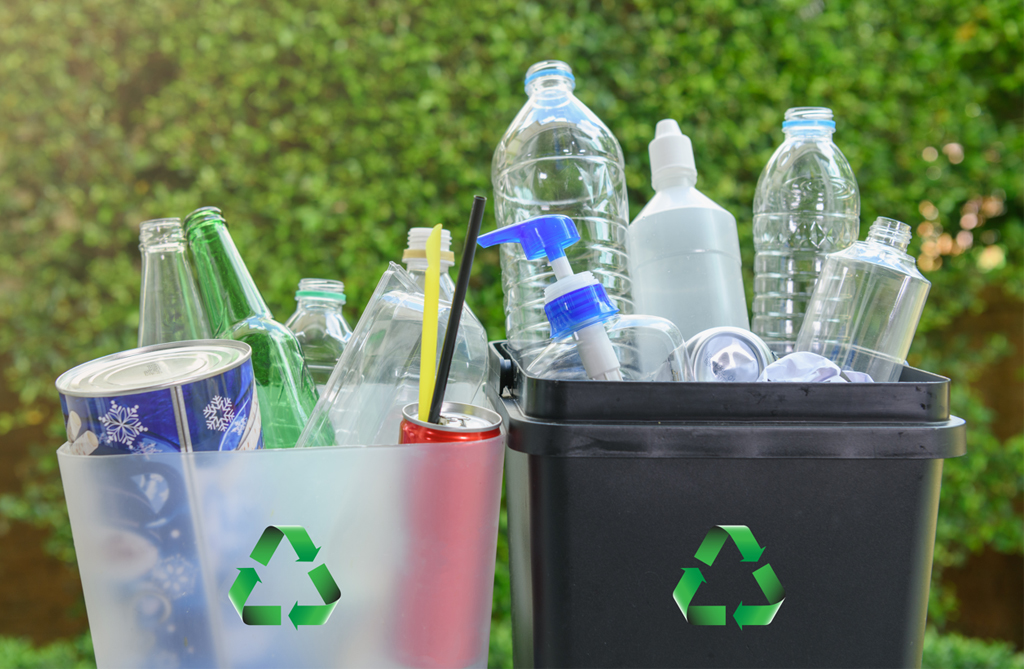Over the last few years, we have experienced a whirlwind of changes and uncertainty, from global pandemics to supply chain issues, and it seems no sector has been unaffected. Although there is hope on the horizon, many things still remain up in the air, including a lot of government reforms to waste management legislation.
This year saw the implementation of the Plastic Packaging Tax, which came into force on 1st April 2022, putting a chargeable levy on plastics made from less than 30% recycled content. Whilst this new government legislation was introduced on time, there has been a lower number of businesses registered than first anticipated by HMRC.

Organisations across the UK are also preparing for the introduction of several other forthcoming legislations – Deposit Return Scheme, Extended Producer Responsibility and consistency of collections.
DRS
In summary, DRS implements a small additional financial ‘deposit’ to drinks in cans and bottles at purchase which consumers claim back upon their return, adding value to waste and encouraging recycling
After lots of consultations within the industry, DEFRA made the decision to delay DRS in England and Wales until at least the end of 2024 to allow for a smoother transition and better participation rates. Specific details on how much the deposit will be and how the waste will be returned are yet to be released. Scotland is aiming to introduce a DRS scheme in August 2023 and Northern Ireland is slightly behind with a preliminary introduction date in February 2024.
EPR
Extended Producer Responsibility places the financial cost of managing products once they reach end of life on producers. Under EPR, producers will be charged with 100% of Full Net Cost recovery, incentivising them to make better, more sustainable decisions at the product design stage including decisions that make it easier for products to be re-used or recycled at their end of life.
Much like DRS, the extended producer responsibility scheme has also experienced delays and changes since its inception. The roll-out of this particular legislation is being done incrementally, starting with data collection. Producers are required to collect and report data on the amount and type of packaging that they place on the market. This data is required to calculate the fees that these producers will be required to pay to cover the cost of managing this packaging as part of the Extended Producer Responsibility (EPR) for packaging scheme which is planned to start in 2024.
Data is to be collected from 1st January 2023, becoming a mandatory requirement in March 20223 with reporting of the data starting from July 2023. These dates could be subject to change, but the team at Cromwell are on hand to keep you updated as things progress.
Consistency of Collections
Another change to waste management legislation includes the upcoming ‘Consistency of Collections’ for household waste. WRAP released a statement that as part of the Circular Economy package, the UK needs to achieve a 65% municipal recycling rate by 2035. To help achieve this, the local authorities across England, Scotland, Wales, and Northern Ireland will soon be introducing a consistent collection process. This will result in all councils collecting the exact same type of waste in the exact same bins. In addition to this, all local authorities will have a mandatory requirement to collect food waste separately.
At present each local authority has its own methods of waste collection for households and businesses, the new plans hope that consistency across the entire UK will increase recycling levels and participation rates. This new initiative is not set to be fully introduced for a few years yet, however, many councils are already beginning to put plans in place to prepare for its implementation. You may see local authorities adapting their kerbside collections and changing their collection methods.
Stay up to date
The waste management legislation reforms and their respective introduction timelines still require more detail and could be subject to changes. You can keep updated with these changes by signing up for our newsletter, which has regular industry updates.